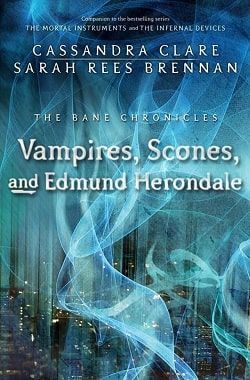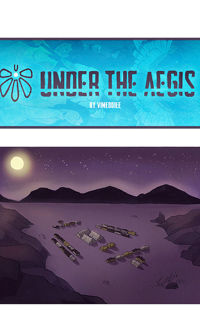Vampires, Scones, and Edmund Herondale, the third installment in The Bane Chronicles by Cassandra Clare, is a delightful blend of humor, romance, and supernatural intrigue set against the backdrop of Victorian London. This novella not only expands the rich tapestry of Clare's Shadowhunter universe but also delves into the complexities of loyalty, love, and the often murky waters of alliances in a world divided by species and power dynamics.
At the heart of the story is Magnus Bane, the flamboyant and charismatic warlock who has become a fan-favorite character throughout Clare's works. Magnus is invited to attend peace talks between the Shadowhunters and Downworlders, a gathering that promises to be as contentious as it is crucial. The setting of Victorian London adds a layer of charm and elegance, with its cobblestone streets and gaslit alleyways, which Clare captures beautifully. The historical context enriches the narrative, allowing readers to immerse themselves in a world where magic and societal norms collide.
One of the standout elements of this novella is the introduction of two compelling characters: Camille Belcourt, a cunning vampire with a complex past, and Edmund Herondale, a young Shadowhunter who embodies the ideals of bravery and honor. Clare masterfully contrasts these two characters, each representing different facets of the supernatural world. Camille, with her sharp wit and seductive charm, embodies the darker, more manipulative side of immortality, while Edmund represents the noble, albeit naive, perspective of the Shadowhunters. This duality creates a rich narrative tension as Magnus navigates his feelings for both characters.
The theme of loyalty is prevalent throughout the novella. Magnus finds himself torn between his growing affection for Edmund and his complicated history with Camille. This internal conflict is not just a romantic dilemma; it reflects the broader struggles faced by Downworlders and Shadowhunters in their quest for coexistence. Clare's exploration of these themes resonates deeply, particularly in a contemporary context where divisions often arise from misunderstandings and historical grievances. Magnus's journey serves as a reminder that love and loyalty can transcend boundaries, but they also require difficult choices and sacrifices.
Character development is another strong suit of this novella. Magnus, who has often been portrayed as the carefree, flamboyant warlock, is given depth as he grapples with his feelings and the implications of his choices. His interactions with Edmund and Camille reveal layers of vulnerability and strength, showcasing Clare's ability to create multidimensional characters. Edmund, too, undergoes significant growth as he confronts the realities of his world and the complexities of the relationships around him. The chemistry between Magnus and Edmund is palpable, and their budding romance is both sweet and fraught with tension, making readers root for their connection despite the odds stacked against them.
Moreover, the dialogue in Vampires, Scones, and Edmund Herondale is sharp and witty, filled with Clare's signature humor. Magnus's quips and observations provide levity amidst the more serious themes, ensuring that the narrative remains engaging and entertaining. The banter between characters is not only enjoyable but also serves to highlight their personalities and relationships, making the stakes feel even higher when conflicts arise.
Clare's world-building continues to impress, as she seamlessly integrates historical elements with her established lore. The Victorian setting is not merely a backdrop but a character in its own right, influencing the actions and motivations of the characters. The societal norms of the time, particularly regarding class and gender, are woven into the narrative, adding another layer of complexity to the story. This attention to detail enhances the reader's experience, making the world feel alive and vibrant.
In comparison to other works within the genre, such as Holly Black's The Cruel Prince or Sarah J. Maas's A Court of Thorns and Roses, Clare's novella stands out for its unique blend of humor and heart. While both authors explore themes of power and romance, Clare's approach is distinctly lighter, allowing for a more whimsical exploration of serious issues. The focus on Magnus's perspective also sets this novella apart, as it offers a refreshing take on the traditional hero's journey, showcasing a character who is both powerful and deeply flawed.
Overall, Vampires, Scones, and Edmund Herondale is a captivating addition to The Bane Chronicles that will delight fans of the Shadowhunter universe and newcomers alike. Clare's ability to weave humor, romance, and social commentary into a compelling narrative is on full display, making this novella a must-read. The exploration of loyalty, love, and the complexities of identity in a divided world resonates deeply, inviting readers to reflect on their own relationships and allegiances.
In conclusion, this novella not only entertains but also challenges readers to consider the nature of their own loyalties and the choices they make in the name of love. With its rich character development, engaging dialogue, and thoughtful themes, Vampires, Scones, and Edmund Herondale is a testament to Cassandra Clare's storytelling prowess and her ability to create a world that feels both fantastical and relatable.
























Reviews 0
Post a Reviews: